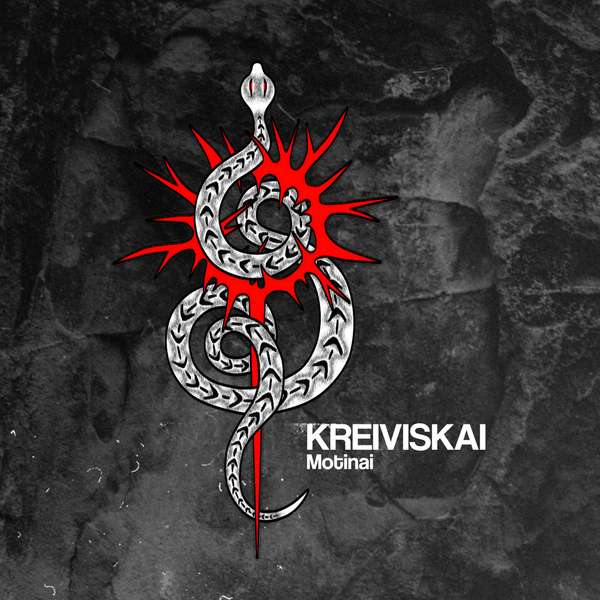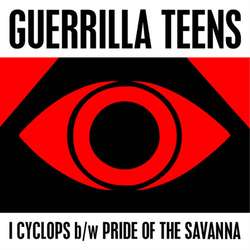Kreiviskai's origins are deeply rooted in the neofolk sound and ethos. Their debut record, Zemmis : supnãi, focuses on the musical lineage of Tver, embracing the traditional instrumentation to produce a somber and moving piece. Their follow-up record, Nonregnum expands outward, focusing on various historical events and introducing further influences. The pull of neo-classical is palpable, while the abrasive industrial and darkwave sounds also appear. Thus, we have arrived at this year's Motinai, a record that looks even further than its predecessor, while at the same time paying homage to tradition.
The foundation still lies in the folk tradition, the final part of "Creation" slowly blossoming toward a powerful crescendo. In this mode, Kreiviskai are formidable, stripping down to just an acoustic guitar, vocals, and drums to produce some of their most moving moments. The start of "Anthropocene" holds this deliberate procession and movement. It is this exact modus operandi that Kreiviskai can then morph into a tribal manifestation. Here, they are guided by Wardruna's precision; their percussive mathematical dedication is hypnotic through "Old Europe." Still, Kreiviskai move further away from the Scandinavian heritage, and dig their heels in the Slavic sphere through the bayan in "To Horizon." It builds an intrinsic momentum and drive that washes over "Green Oak," fully manifested when the drums come in.
It is within this tribal motif that Kreiviskai find their new niche. "Footprints In The Snow" rolls through the neofolk tradition when suddenly the percussion becomes distorted, the beats turn mechanical, and the full weight of electronica and EBM descends upon you. For just a second, it feels like blasphemy, but it is incorporated so well that it is difficult not to lose yourself within this expanding sonic palette. "The Grove" continues on this path, the sparse and strange sonic artifacts adorning the glorious soundscapes. It is only logical for "The Clearcut" to capitalize on this motif by moving the procession into the darkwave and post-punk dimensions. The strong bassline takes over, the ambiance gets dimmer, bringing to mind the likes of King Dude.
While these moments offer a certain movement, Kreiviskai are also adept at dropping the pace and going for something minimal. The ritual ambient motifs are poignant, starting with the simple water dripping samples and mysterious whispers of "Old Europe." In this manner, they connect to an esoteric side of the folk tradition, which can result in soaring moments like the final part of "Green Oak." They can also descend to the religious history, as with "Agia Parthene," which transforms the scenery of a medieval church.
What is astonishing here is how Kreiviskai can always remain enticing. In that way Motinai's core component is its catchiness. The record's hooks are astonishing, no matter if they arrive with an industrial quality or a folk-ish progression. You will be repeating the lines of "To Horizon" for days to come, and the pop sensibility of "Main Myth" hooks its claws to your mind. It is what completes Kreiviskai's identity and reveals their potency. They are not simply capable of crafting catchy songs. Kreiviskai thrive both when honoring tradition and when reshaping it. Motinai proves they can do both without compromise



